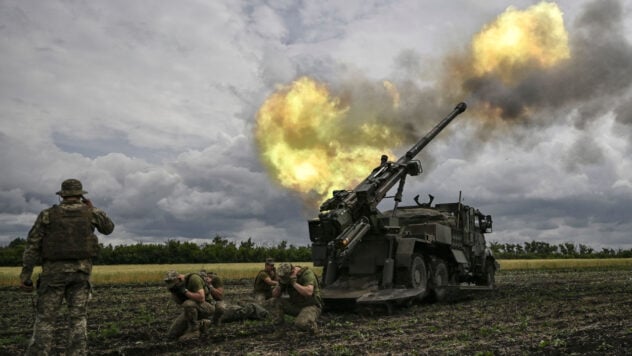Michael Kofman, a leading researcher at the US Center for Naval Analysis, does not believe that the Russian war against Ukraine has completely turned into a positional one. In his opinion, now it is a battle of attrition.
He told NV about this.
— I agree with Zaluzhny that the counteroffensive has actually ended. Local offensives from the Russian side are now continuing: from Kupyansk to Avdeevka. But I don’t think that the war has completely turned into a positional one – now it is rather a war of attrition. And I think this situation will continue throughout the winter,” he said.
According to Kofman, with the current offensive in Avdeevka, the Russian Federation has demonstrated that it does not consider the war to be positional. Large-scale mechanized attacks by Russian forces in October were unsuccessful, but they are still trying to encircle Avdiivka. The battle for this city continues.
Currently watching
“This is not yet a deadlock, or at least not a stable and long-term one – now there is a war for the initiative along the front line,” he added.
Regardless of the format of the war, next year will be the most difficult, the analyst points out.
According to an employee of the US Center for Naval Analysis, the Russian Federation will have more material resources – these are ammunition, drones (in particular FPV), mines, electronic warfare, cruise missiles, and the assistance it receives from North Korea and Iran. She would have the advantage in artillery and fire support, and perhaps in manpower. This will also depend on whether the Russian Federation will carry out a repeated partial mobilization, which may happen after the elections in the Russian Federation in March.
At the same time, positional warfare is not necessarily in favor of the Russian Federation. Because Russia’s political task in this war is not just to defend, but to attack. If this were not so, then they would not have attacked Avdiivka now and would not have hoped to take Donbass.
In this offensive, the Russian Federation, most likely, has now lost as much equipment as the Ukrainian Armed Forces could have lost in the first four months of the battles near Orekhovo in Zaporozhye. But despite the fact that their forces are now insufficient for breakthroughs, the military-political leadership still advocates an offensive.
“A positional war can create either a conditional parity of the parties next year, or it will be an advantage for the Russian Federation, but not in qualitative, but in quantitative terms,” notes Kofman.
He also drew attention to the fact that the Russian Federation knows how to create a deep defense and fortify itself well. The expert believes that in some areas Ukraine should take the same approach in order not only to create a more reliable defense, but also to free up forces for both reconstruction and offensive operations.
Want to rest? Come to Facti.GAMES!
Earlier, the commander of the operational-strategic group of troops of Tavria, Alexander Tarnavsky, said that the occupiers had begun the third wave of active operations as part of the offensive in the Avdeevsky direction.

